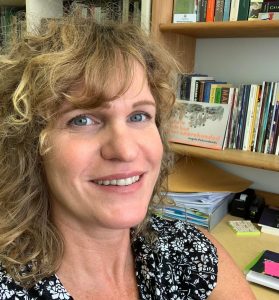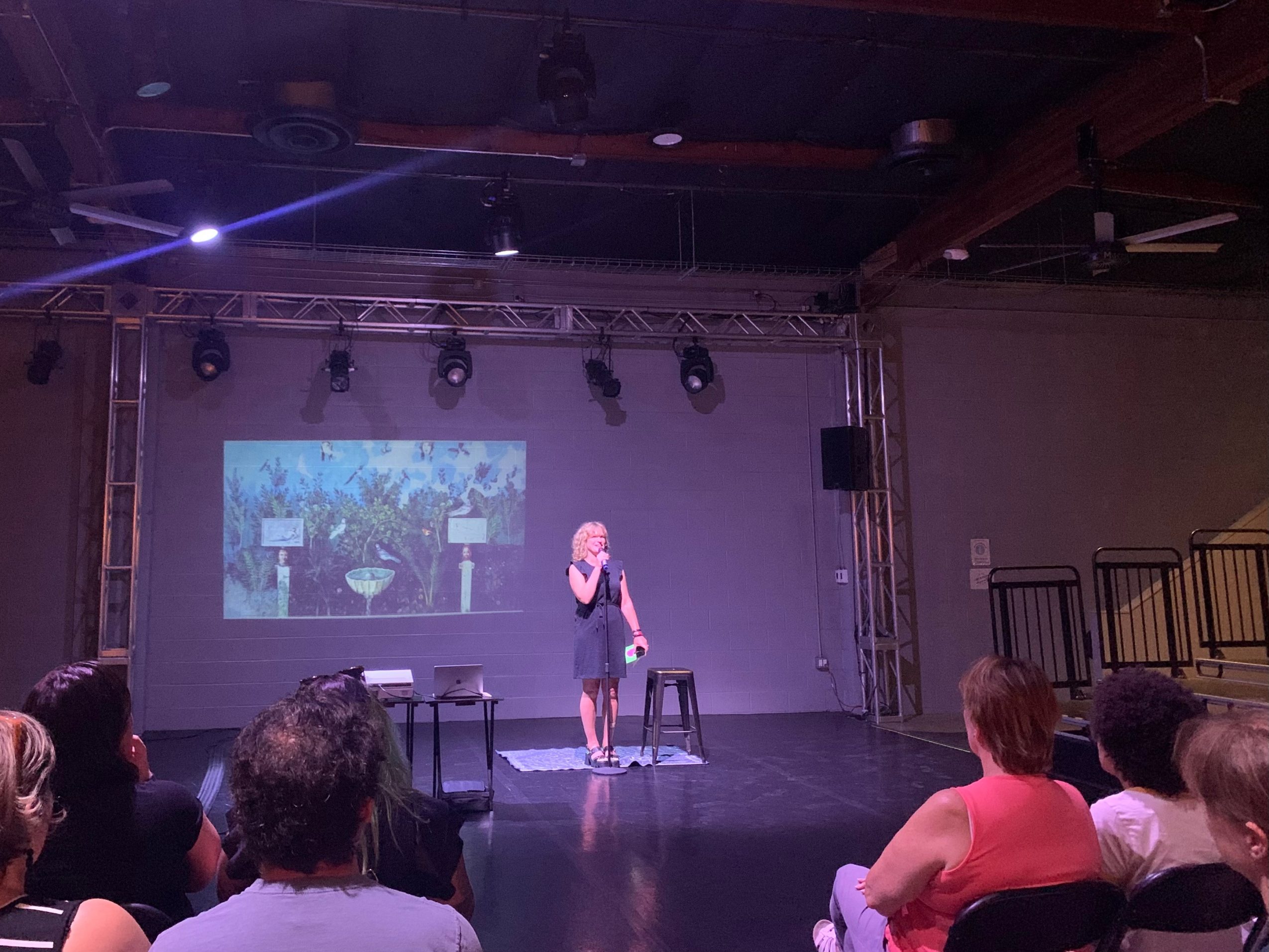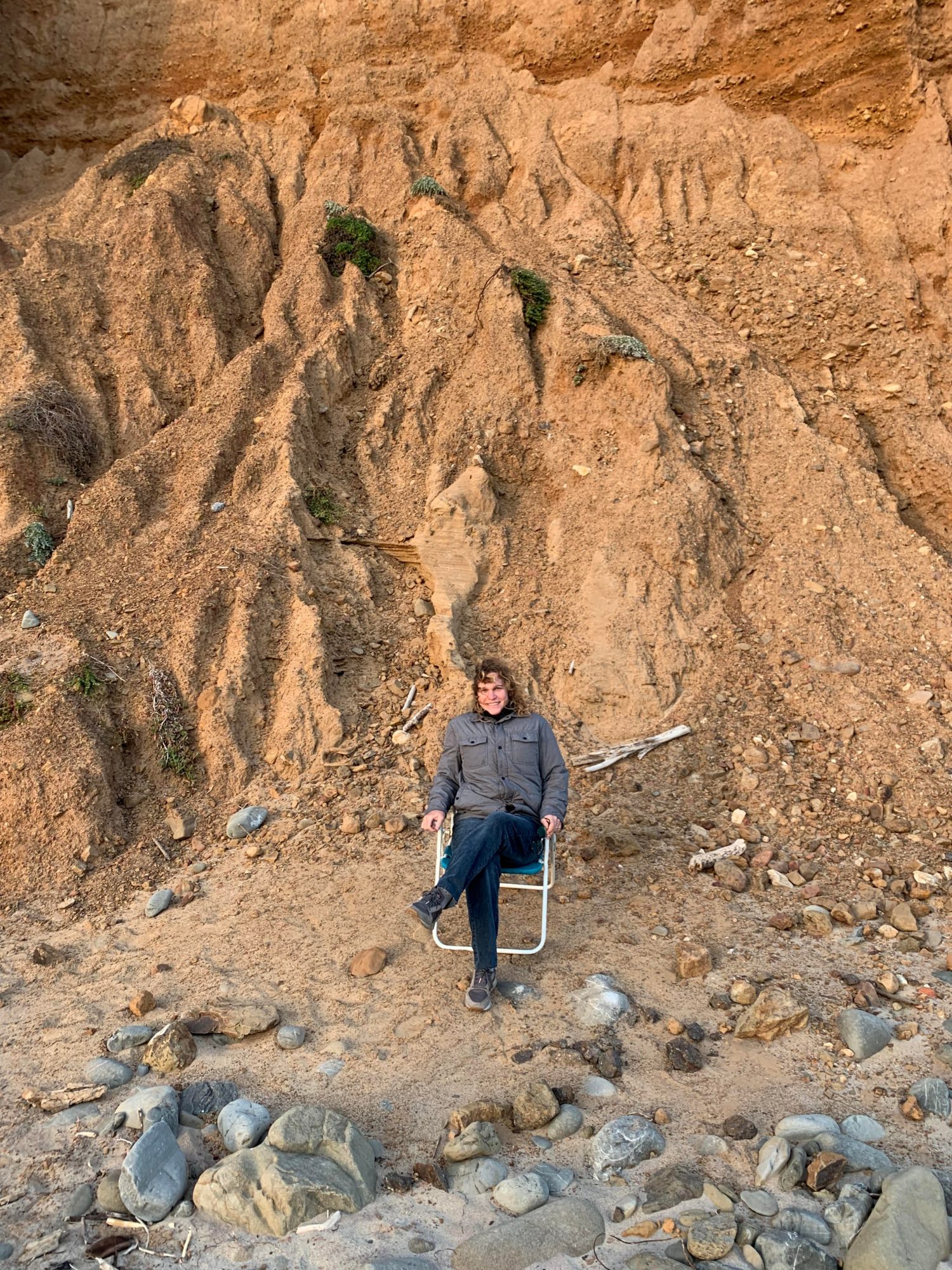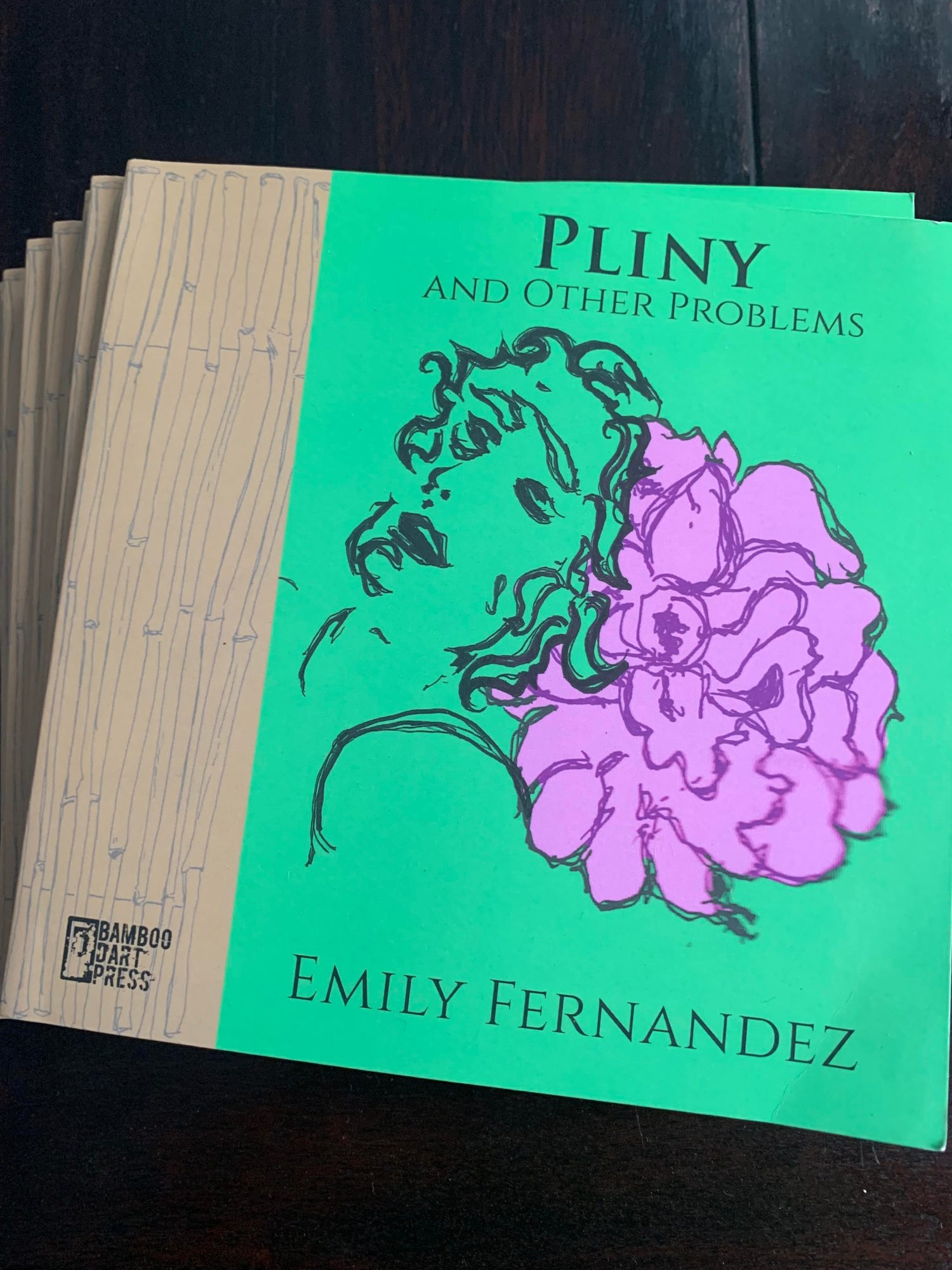
Today we’d like to introduce you to Emily Fernandez.
Hi Emily, thanks for joining us today. We’d love for you to start by introducing yourself.
Hello, thank you for this opportunity! I am an English professor and a writer. For the most part, I am doing what I always wanted to do, and I take that as a blessing! When I was in third grade, the school newspaper asked us what we wanted to be when we grew up. I watched the boys write baseball players and firemen, and many girls writing “cheerleader” and “actress” and drawing pictures of themselves with red lips and pretty dresses. I cannot be certain where my response came from, but I wrote: “A writer and a farmer’s wife.” Ha! I lived in the suburbs of San Diego, daughter of a nurse and engineer, and I knew nothing about being an author, and I had never been to a farm. I read books, but not avidly. I was a slow reader. I do remember making up stories with my sister and friends. I dwelled in my imagination more than on the page. Though I do remember trying to write a novel about a donkey who somehow wins a horse race when I was ten. All of this to say, the desire to be a writer stuck with me, and at my elementary school, I was asked to write poems to commemorate a few events. By the time I was in high school, being a writer was a full-fledged dream. I carried around copies of Dorothy Parker, Guy de Maupassant, Tennessee Williams, James Joyce, and Sylvia Plath. I was their disciple.
Throughout my twenties and thirties, I wrote, received some praise and awards, but I got distracted, gave up on it (for a while I wanted to be a demographer!), went back to writing, tried to get published, gave up once more, and then went crawling back again. I still try to quit all the time. Books kept me returning. I wanted to do what the writers I loved do, and I craved words. It’s like a really bad relationship that I could not and cannot free myself from because the payoff feels too good — the magic of an idea vibrating through an image, the hours lost in a story. Luckily, in my thirties, I joined local writing groups and found a wonderful community in El Sereno. I was able to publish two chapbooks of poetry in my forties. I’ve dabbled in playwriting. I’ve written quite a bit of fiction. In between all of this, I became an English professor at Pasadena City College. I absolutely love teaching English and creative writing. My students give me energy and inspiration, but teaching and lesson-planning are intensely interactive and creative processes. As a mom, community activist for economic and environmental justice (another story), writer, and teacher, I am often overwhelmed, but, somehow, I keep writing when I can. Lately, I joined the San Gabriel Writer’s Circle that meets at Stomping Ground LA, and I have been working on a novel.
Finally, I know you may be wondering about the “farmer’s wife” comment. When I was eight, I must have figured that I wanted a farm, but I wanted a husband to do the work. Ha! In any case, I am married, but not to a farmer – though we do have dogs and a flourishing garden, and, for a while, we had some pretty cute chickens.
We all face challenges, but looking back would you describe it as a relatively smooth road?
Yes and no. As I stated above, when it comes to writing, I haven’t been as disciplined as I wanted to be. I struggled with staying focused. Writing is solitary, and I love people (okay, most people some of the time). Also, there is that brutal thing called self-doubt. And the blank page. I’ve been talking about the struggle of the blank page with my students. Many come into my class not liking English and fearing writing. They see the act of writing as an assignment for which they will be judged and scrutinized. I struggled with that, too, so I tell them what I have learned from writing — it always starts with a mixture of failure and magic. I have them write in class all the time about anything and nothing just to get them to practice. They start to see that there is magic in the mess of a first draft — in their freewrites (as Peter Elbow calls them). Ta-Nehisi Coates said in an interview that “writing is revising.” Anne Lammott calls the first draft the “shitty first draft.” I teach this to my students because I need to remind myself. Sometimes, you just have to start at the bottom. The cure for writer’s block is “typing” as Coates says, “You’ve got to type something.” Who cares if it is crap, nobody has to see it. Sometimes it’s not. In fact, the most important part of the first draft is that you may just uncover some creative magic — when words seem to come from something larger than yourself. The spark. If you follow it, you might have your own book of poetry or essays or fiction (or at least an A in my class). Who cares if your work gets published (I tell myself this all the time), to live for a few hours or years in the realm of your imagination, to walk through the lush valley and dark forest of your mind is always its own reward. It’s victory!
Thanks – so what else should our readers know about your work and what you’re currently focused on?
I just published a chapbook, Pliny and Other Problems with Bamboo Dart Press in July. This book explores, among many other issues, my relationship with nature and environmental sustainability. In my critical thinking class, I teach about climate change and the environmental movement. For ten years now, I have followed the IPCC reports, environmental laws, political debates, etc., but also, I raised two boys, who, when they were young, wanted nothing more than to go to Descanso Gardens, The Arboretum, The Natural History Museum, Eaton Canyon, The Aquarium of the Pacific, and, of course, the beach. I spent over ten years gazing at dinosaur bones, feeling the texture of rocks, reading about plants, following the news about endangered species like the vaquitas, collecting seashells, building gardens, and swimming in the ocean. Of course, all this has deeply impacted my writing and poetry. Not surprisingly (or maybe a little surprisingly), my poems about weeds and small plants seem to be the most popular among journal editors, though I do write about many topics. Since I have a tendency to say yes to good ideas and good trouble, I also have been involved in quite a bit of community work, like organizing for fair trade, affordable housing, and environmental justice. This is intertwined in my writing, too, along with my general excitement and angst about the world we share and how to love in it better. My poems have been published in SHIFT, Antithesis Journal, Black Fork Review, Pangyrus, The Dewdrop, Angel City Review, Tiny Seed Journal, and others. My first book of poems, Procession of Martyrs, was published by Finishing Line Press in 2018. Also, I am currently (frightfully) working on a novel.
Are there any apps, books, podcasts, blogs or other resources you think our readers should check out?
Thanks for asking! I do want to shout out these two wonderful creatives who have inspired me in the last year:
Life of JEM Podcast has some wonderful interviews with mostly local authors: https://juanitaemantz.com/podcast/
Also, I love the books that Bamboo Dart Press puts out. https://www.bamboodartpress.com/
Contact Info:
- Email: [email protected]
- Other: https://emily-fernandez.weebly.com/



 Image Credits
Image Credits
Elizabeth Lashley – Haynes, Joaquin Fernandez, Kathy Kottaras











